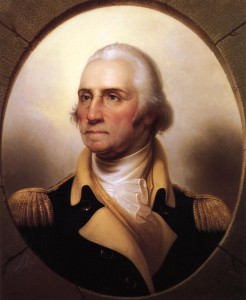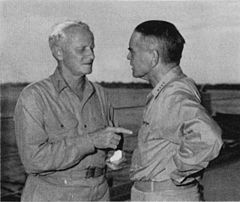There are hundreds of books written on leadership every year, most of which claim to analyze and isolate the traits that make someone a good leader, as if there is a secret formula for leadership that can be bottled and sold. The fact that each book’s secret formula is different does not seem to deter the writers or their readers.
There is no secret formula or combination of traits that will make anyone the best leader, and an excellent illustration of this can be found in Walter Borneman’s new book, The Admirals, which chronicles the careers of the four American admirals who achieved five-star rank while leading our nation to victory in WWII.
The highest ranking (by design, he was the first promoted to the new five-star rank, so that he would have seniority), most influential, and least heralded was William Leahy, who served during the war as FDR’s personal military adviser.
I generally try to post new articles on Tuesdays and Thursdays, but as of last night I had no clue what I was going to write about today. That quandary was resolved when I woke up about 5:30 after a series of very vivid dreams with a clear idea for today’s topic, in fact for a series of topics. My dream actually involved sharks, and my reluctance to dive into murky water to retrieve something I had lost because I suspected they were waiting to snack on my bony body.
I think the reason I woke up convinced that it was time to write about pathos is that the dream reminded me how reluctant we sometimes can be to dive beneath the surface of logic and explore the sometimes dangerous passions, feelings and sentiments that lurk below.
 One of the most dramatic and important moments in American history was marked by what did not happen rather than by what did happen, and it’s all because of the masterful persuasive power of George Washington.
One of the most dramatic and important moments in American history was marked by what did not happen rather than by what did happen, and it’s all because of the masterful persuasive power of George Washington.
On March 15, 1783, General Washington attended a meeting of mutinous officers who were angry about not being paid by the Continental Congress and who were agitating for a march on Philadelphia to take over the government. If this happened, the ideals for which they had fought in order to earn their independence from Great Britain would probably have died. The revolution would have thrown away its high-minded legitimacy and the United States as we know it would probably never have come into existence.
A thirty-year era of repression, “stability” and fear ended last week after eighteen days of protests by ordinary Egyptians. Millions took to the streets in what has been called a leaderless rebellion. One of the most thrilling aspects of the revolution is that it was carried out by millions of ordinary people; as one person called them: “heroes with no names.” There was no strongman who organized a putsch and seized power.
Yet even a mass movement inevitably requires a voice, and one of the most eloquent voices is Wael Ghonim, whose interview on Dream TV helped to reenergize the protests when the regime was hoping that they would run out of steam. That riveting interview was Ghonim’s leadership moment, when his eloquence, deep conviction and courage came together to make a real difference.
If you can take the time, do yourself a favor and watch the entire interview.





